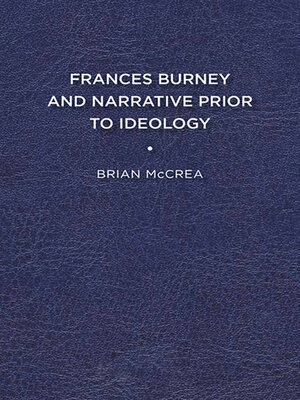
Sign up to save your library
With an OverDrive account, you can save your favorite libraries for at-a-glance information about availability. Find out more about OverDrive accounts.
Find this title in Libby, the library reading app by OverDrive.



Search for a digital library with this title
Title found at these libraries:
| Library Name | Distance |
|---|---|
| Loading... |
Frances Burney and Narrative Prior to Ideology works between Burney's Journals and Letters and her fiction more thoroughly than any study of her in the past twenty-five years. By doing so, it offers significant reinterpretations of Burney's four novels: Evelina, Cecilia, Camilla, and The Wanderer. It describes Burney's eluding the major modern–isms through which critics have tried to read her: Feminism (with its "gendering" of beauty and reversal of gender roles); Capitalism and its Marxist critique (here the details of Burney's housekeeping become important); Professionalism (as a response to status inconsistency and class conflict); and Ian Watt's "Formal Realism" (Burney perhaps saved the novel from a sharp decline it suffered in the 1770s, even as she tried to distance herself from the genre).
Burney's most successful writing appeared before the coining of "ideology." But her standing "prior to ideology" is not a matter of chronological accident. Rather, she quietly but forcefully resisted shared explanations—domesticity as model for household management, debt as basis for family finance, professional status as a means to social confidence, the novel as the dominant literary genre—that became popular during her long and eventful life.
Frederic Jameson has described Paul de Man, "in private conversation," claiming, "Marxism . . . has no way of understanding the eighteenth century." Frances Burney and Narrative Prior to Ideology conjoins Burney's "eighteenth-centuryness" with her modernity.
Published by University of Delaware Press. Distributed worldwide by Rutgers University Press.






